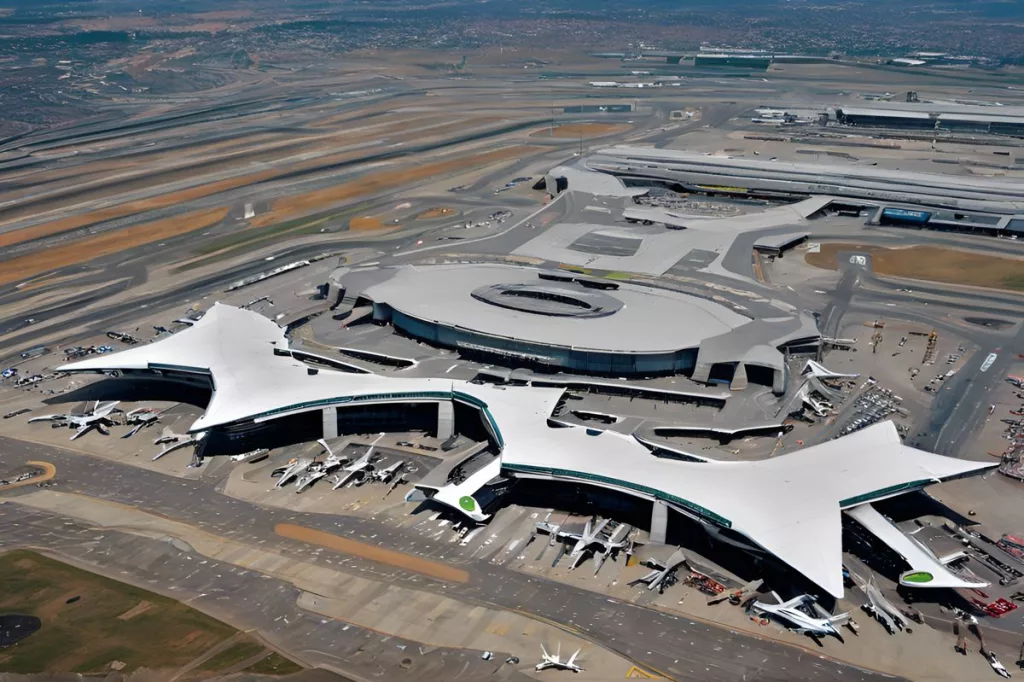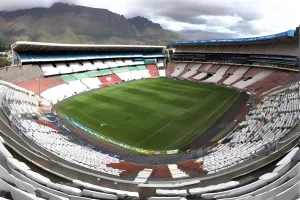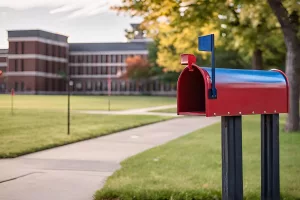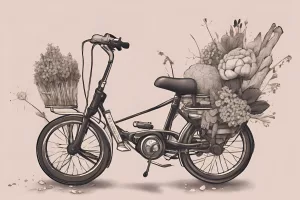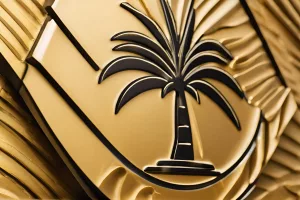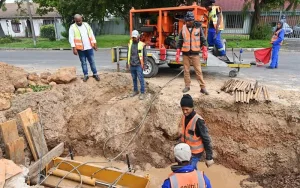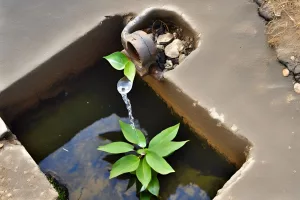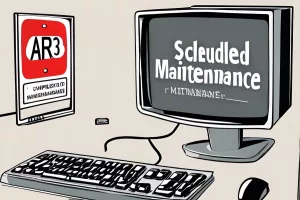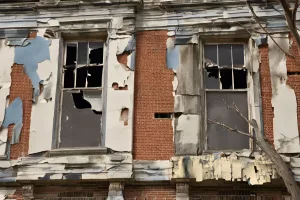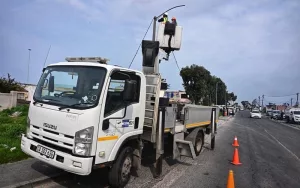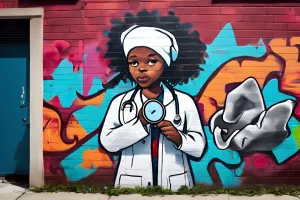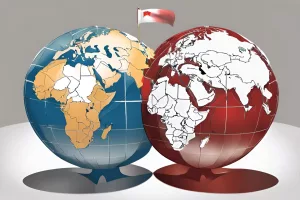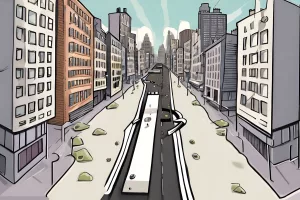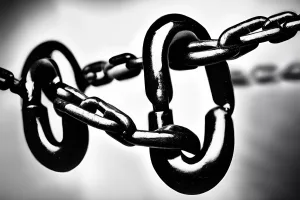Fastjet, Zimbabwe’s private airline, will be introducing a third daily flight between Johannesburg and Bulawayo from November 1st, in a bid to enhance connectivity and stimulate the local economy, as well as boosting Zimbabwe’s tourism sector. Fastjet aims to cultivate a reputation for reliability and outstanding service, offering services that rival those of fullservice airlines. This expansion is not just extending its reach but also contributing to the development of Zimbabwe’s industrial hub, Bulawayo.
The Newlands Stadium in Cape Town, South Africa was once a thriving sports venue and a stronghold of rugby tradition. However, it has now fallen into disuse and become a significant remnant of time’s relentless advancement and progress. Despite being put up for sale, the stadium remains a monument to some of the most epic showdowns in rugby history and continues to hold a special place in the hearts of rugby fans worldwide.
A schoolgirl was violently assaulted by another student outside a high school in Cape Town, and her father claims that the school’s administration failed to inform him about the incident or the ensuing disciplinary proceedings. The article emphasizes the importance of transparent communication within institutions and the impact of such incidents on the mental health of young people. The case highlights the pressing need for creating secure environments for students within and outside school boundaries.
“Mother City” is a powerful documentary that explores urban politics and emotionally resonant human stories. It follows the sixyear activism journey of the “Reclaim the City” movement in Cape Town, South Africa, who fight to repurpose vacant stateowned buildings into homes for over 1,000 individuals. The film has gained international recognition, showcasing its global relevance and impact. The creators are committed to driving action on these pressing issues and embarking on a global tour to facilitate discussions and encourage engagement. “Mother City” is a rallying cry for social change, pushing the envelope of traditional storytelling to foster transformation.
Farewell to a Stalwart: South Africa Mourns the Loss of Renowned Writer, James Matthews
James Matthews, a celebrated poet, writer, and antiapartheid activist, passed away, leaving South Africa in deep sorrow. Matthews’ legacy extends beyond literature, emphasizing his unwavering commitment to a racially integrated South Africa. He was an unforgettable figure who used art as a powerful tool against oppression and left behind a legacy that continues to galvanize. Matthews’ contributions to literature and activism were acknowledged by the highest order when he received the Order of Ikhamanga in 2004.
The Palm House Boutique Hotel and Spa is a serene hideaway nestled between Table Mountain and flourishing vineyards in Constantia. The hotel’s Garden Suites, Deluxe King Suite, and culinary excellence offer guests an unforgettable experience, embodying the concept of “approachable luxury”. The property’s historical nature has been preserved during its transformation into a modern and sophisticated retreat, featuring contemporary elements such as custom wallpapers and curated artworks. The hotel provides a bridge between the past and the future, offering guests a tranquil oasis amidst the bustling city pulse.
The city’s water and sanitation systems are getting a fantastic makeover! With over 26,000 meters of old pipes already replaced, the improvements promise cleaner water and better waste management for everyone. This exciting project is not just about fixing pipes—it’s about creating a healthier future and a stronger community. Residents are feeling hopeful as their neighborhoods transform, showing that teamwork and smart planning can lead to a brighter tomorrow.
Deputy President Paul Mashatile’s Dialogue on the African Continent Peace and Crucial Infrastructure
Deputy President Paul Mashatile discussed critical issues affecting Africa, such as peace, infrastructure, water scarcity, crime rates, and land reform. He emphasized the government’s commitment to resolving these issues and called for collective action. Mashatile highlighted the role of Communal Property Associations in land reform and addressed the issue of construction mafias. He maintained an optimistic perspective on progress and the future.
Cape Town’s Unemployment Insurance Fund (UIF) has been facing unanticipated complications in its digital services, leading to a court injunction and misleading information circulating among South Africans. Despite the halt in its online systems, measures have been taken to ensure fullfunctioning at labour offices, where operations appear to be performing more efficiently without the uFiling system. UIF is working to restore its essential digital services and hopes to manage the crisis and resume its services as soon as possible.
The Philippi Police Academy is in big trouble, dealing with awful conditions like leaking toilets and moldy roofs. Trainees struggle without basic things like hot water and enough computers, leaving them unprepared to protect the community. Over R114 million has been spent there since 2018, but no one has checked the finances in six years, raising serious concerns about where the money went. This mess highlights a lack of leadership and accountability, making it clear that real change is needed to restore hope for these future police officers.
The City’s energy teams repaired over 6,800 streetlight faults in just two weeks, with 245,000 streetlights under constant care. Alderman Xanthea Limberg is calling for public participation in safeguarding streetlight energy from vandalism and theft. The progress made in addressing streetlightrelated complaints shows the positive changes from the City’s initiatives, and a united effort from the public and City can lead to safer and brighter communities.
The 10th Special Session of AMCEN demonstrated proactive and collaborative efforts towards enhanced environmental stewardship, where the participants discussed the escalating threat of drought and its humanitarian consequences. South Africa’s Minister of Environment, Dr. Dion George, highlighted the need for a cohesive African stance on drought and emphasized the importance of fulfilling sustainable development goals through financial commitments and innovative financing methods. Dr. George also acknowledged the crucial role of biodiversity conservation and the linkages among various environmental challenges, calling for globally applied strategies and a dedicated fund for implementation.
Tom London, a former broadcaster, expressed dissatisfaction with the healthcare services he received at Helen Joseph Hospital in Johannesburg, alleging patient maltreatment and unsanitary conditions. The Gauteng Health Department reviewed his care and found that adequate clinical care was given, but acknowledged known infrastructure issues that were being addressed. The incident highlighted the need for empathy in healthcare, maintaining hospital infrastructure, and the critical role of community support. The situation sparked a broader conversation about healthcare in South Africa and the need for continuous improvements.
The recent FOCAC summit highlighted the power of unity and collaboration in global discourse. South African President Cyril Ramaphosa emphasized the need for mutual aid and cooperation in addressing global challenges, highlighting the strength of shared humanity. FOCAC played a significant role in nurturing and enhancing relationships between China and Africa, promoting development and inclusivity. The future of a modern, developed, and progressive Africa can only be realized through cooperation and collaboration.
On September 6, 2024, San Remo and Bayview will experience a temporary power outage due to critical maintenance on a local substation. The City has provided an interruption map on their website for affected residents to prepare and plan accordingly. In case of unforeseen delays, residents can stay updated through the City’s communication channels and are advised to turn off appliances to avoid damage caused by unexpected power surges. Despite the inconvenience, the maintenance work is necessary for the longterm stability of the community’s power supply.
The effects of apartheid on South Africa’s social climate are still present today as demonstrated by a recent TikTok video showing racial bias. Despite progress towards racial harmony, educational efforts, awareness campaigns, and open dialogue are needed to uproot prejudice and discrimination. Each citizen has a responsibility to promote tolerance and unity towards a future where equality and respect for all is a living reality. South Africa’s journey towards a society free from prejudice, discrimination, and racism may be challenging, but with resilience and determination, it can be achieved.

